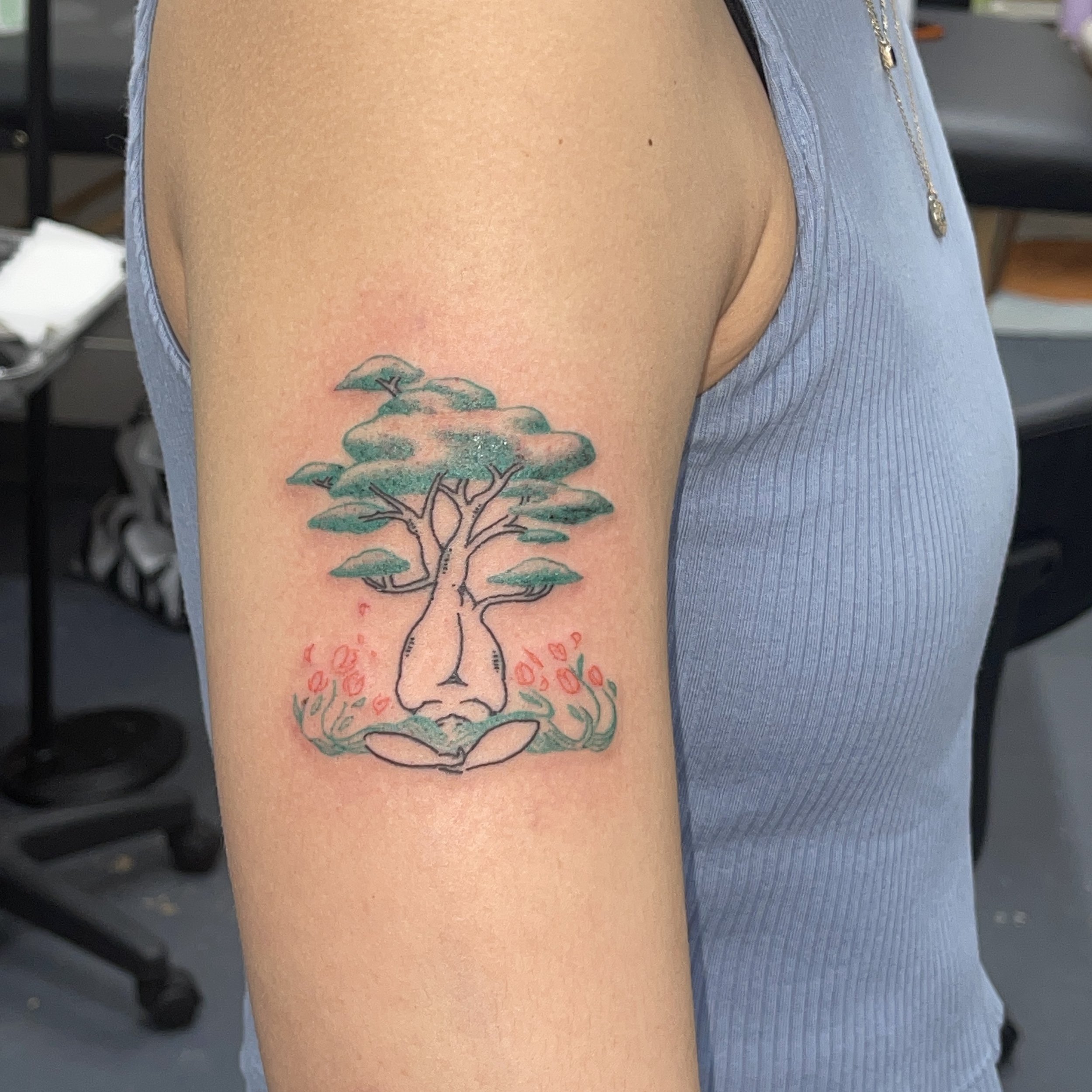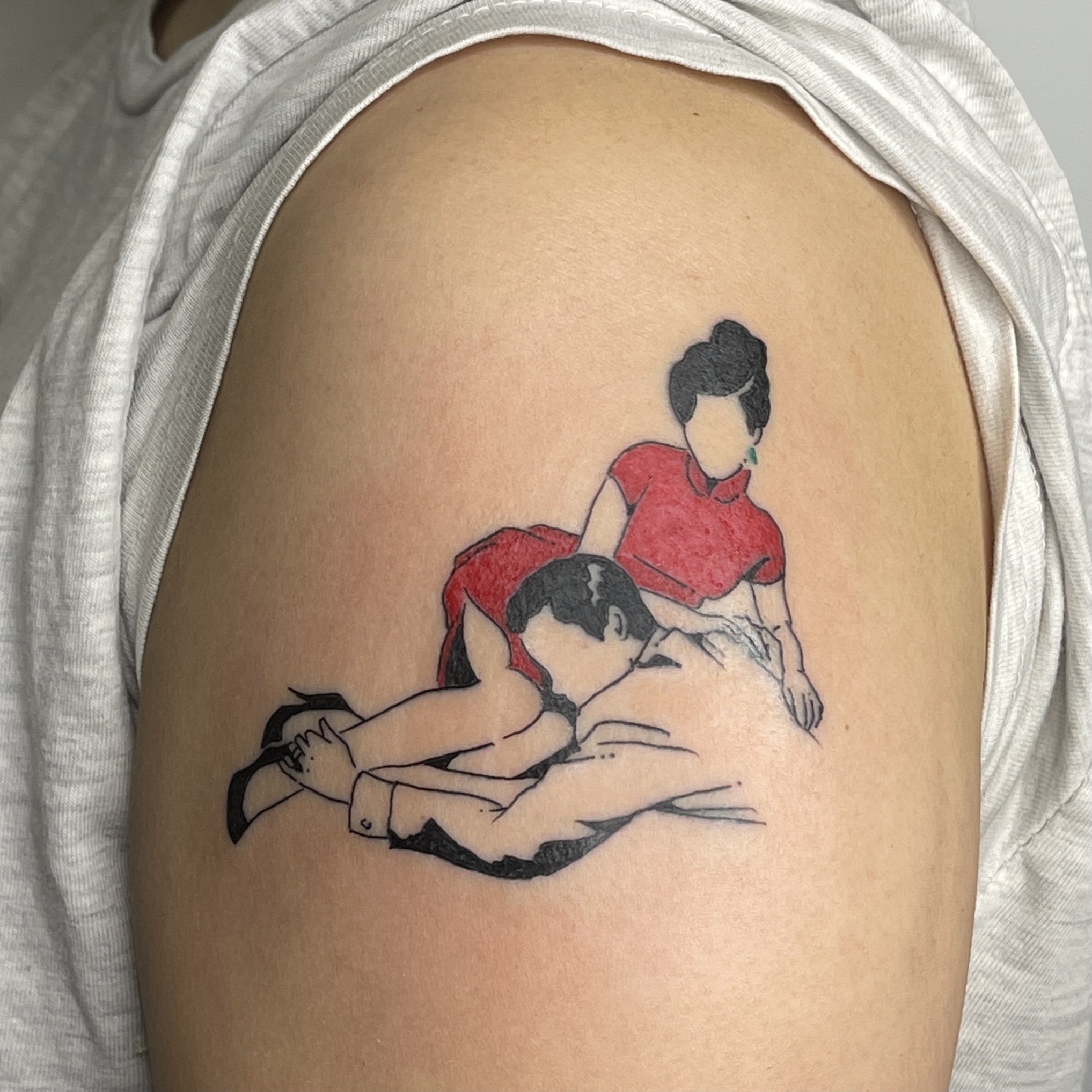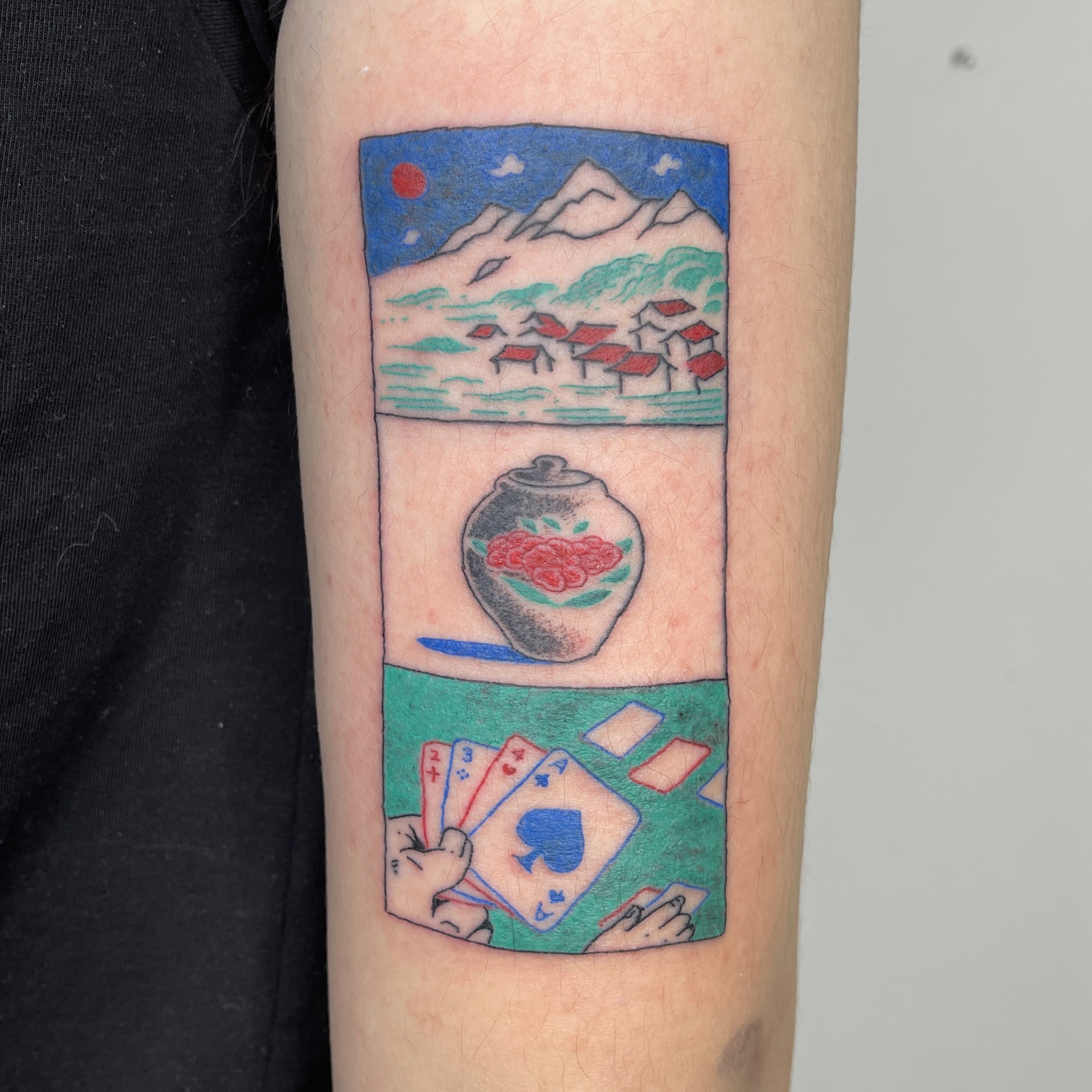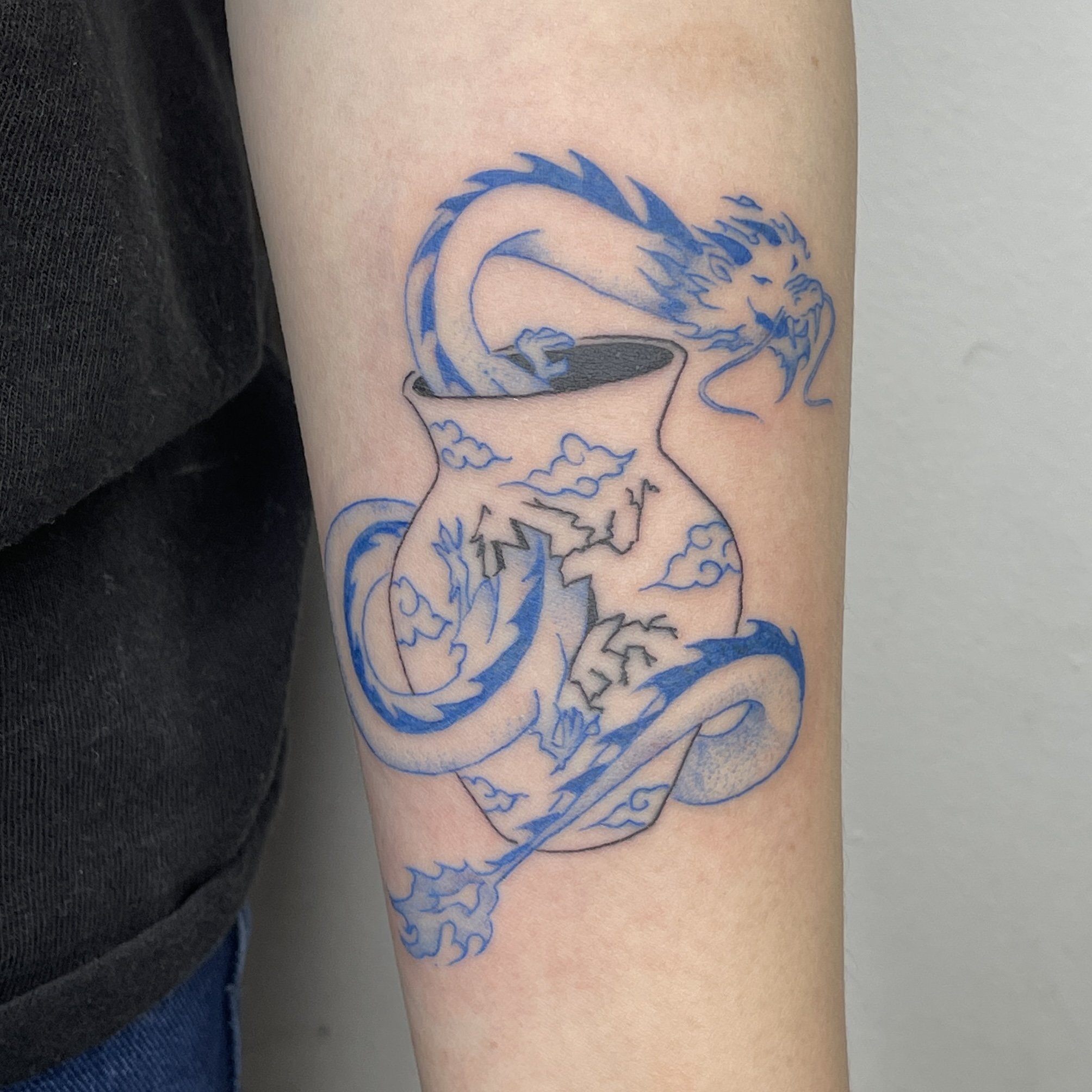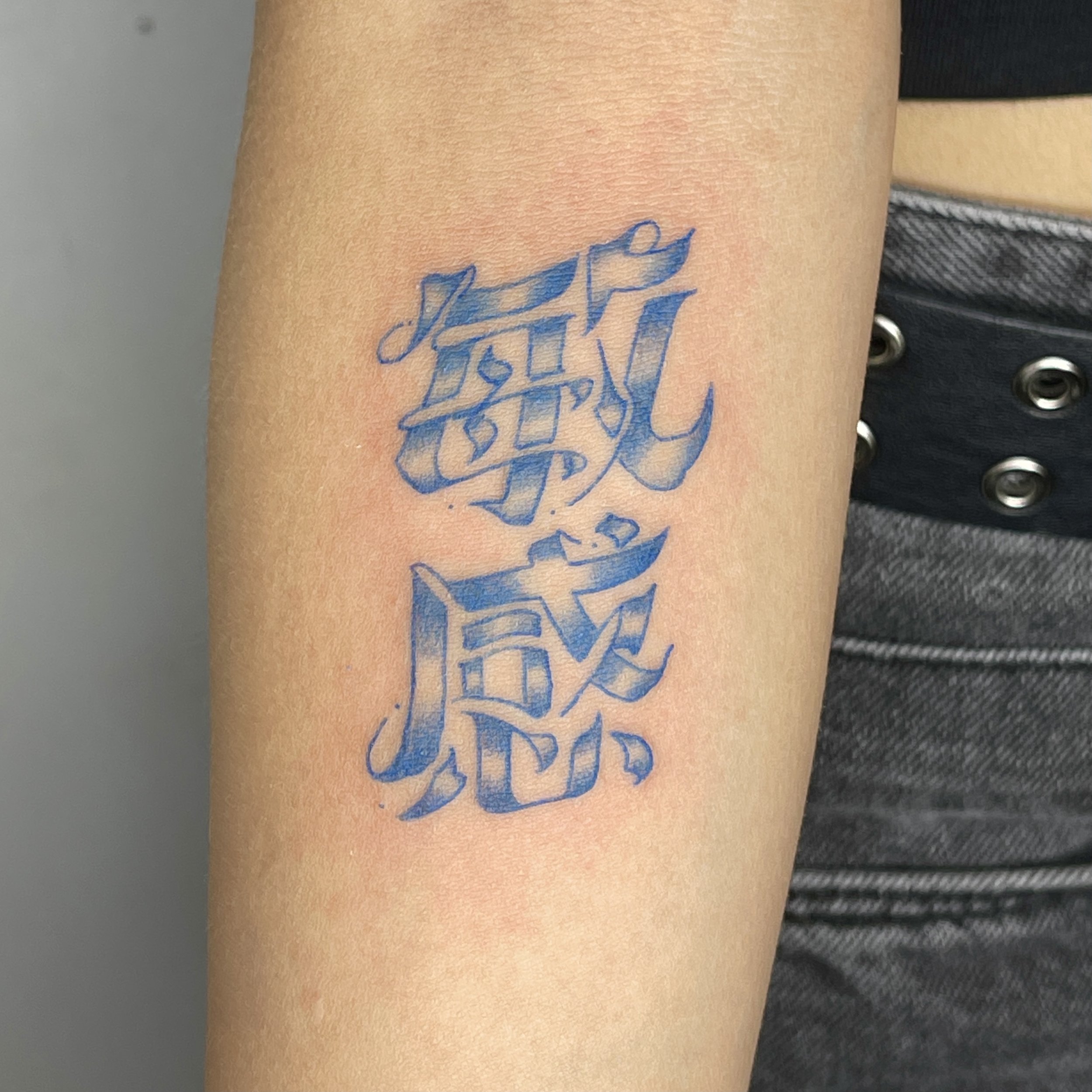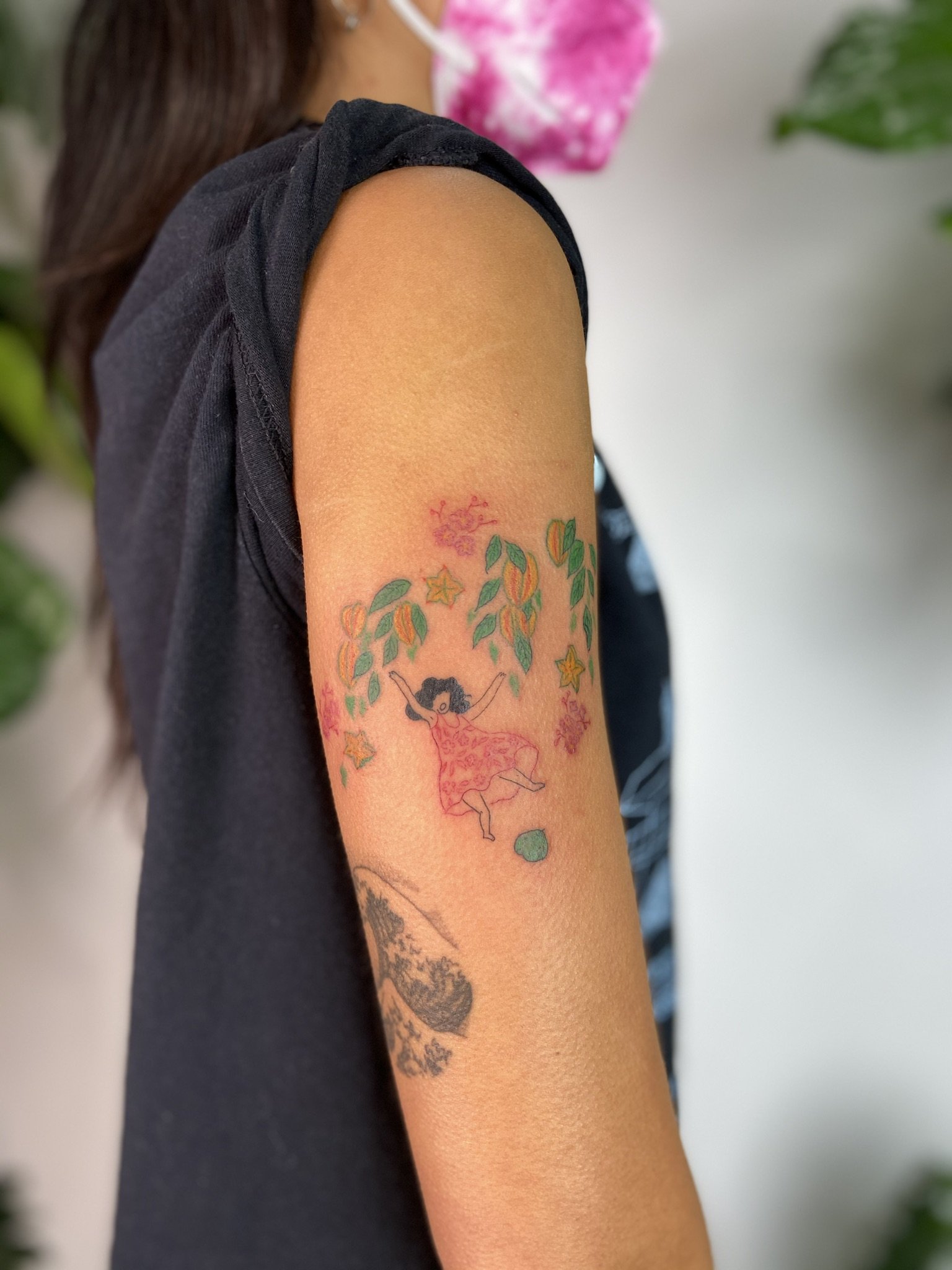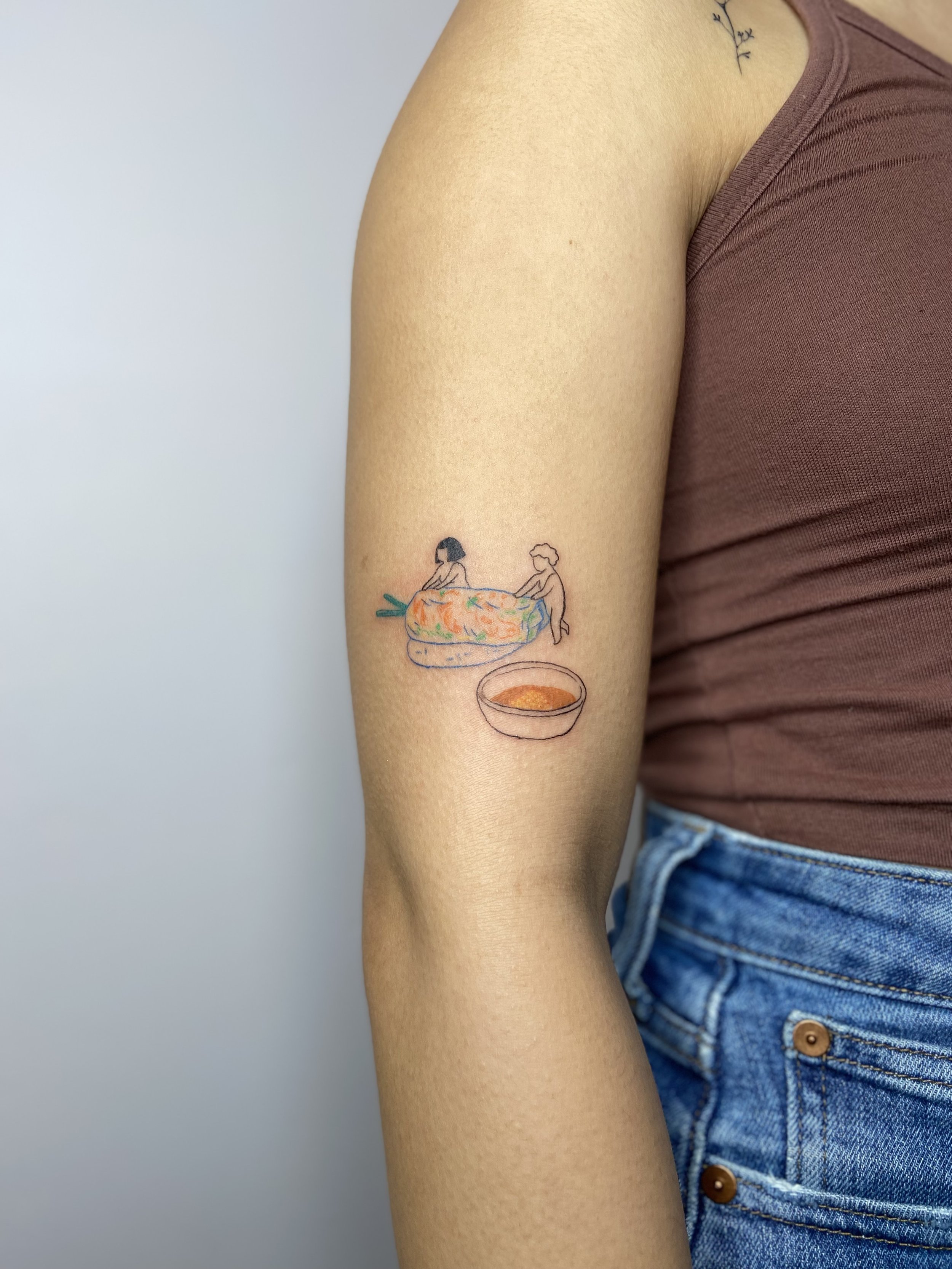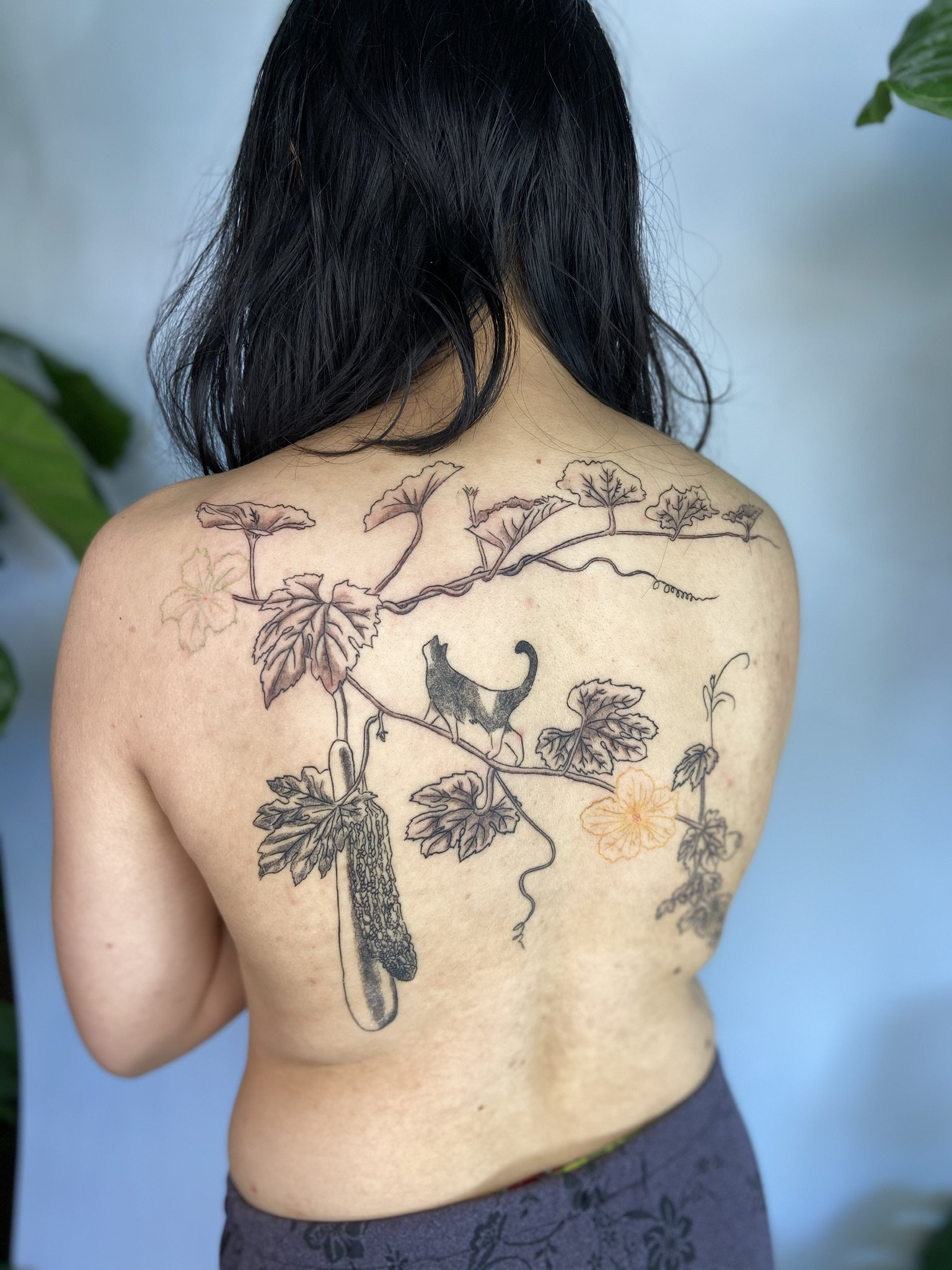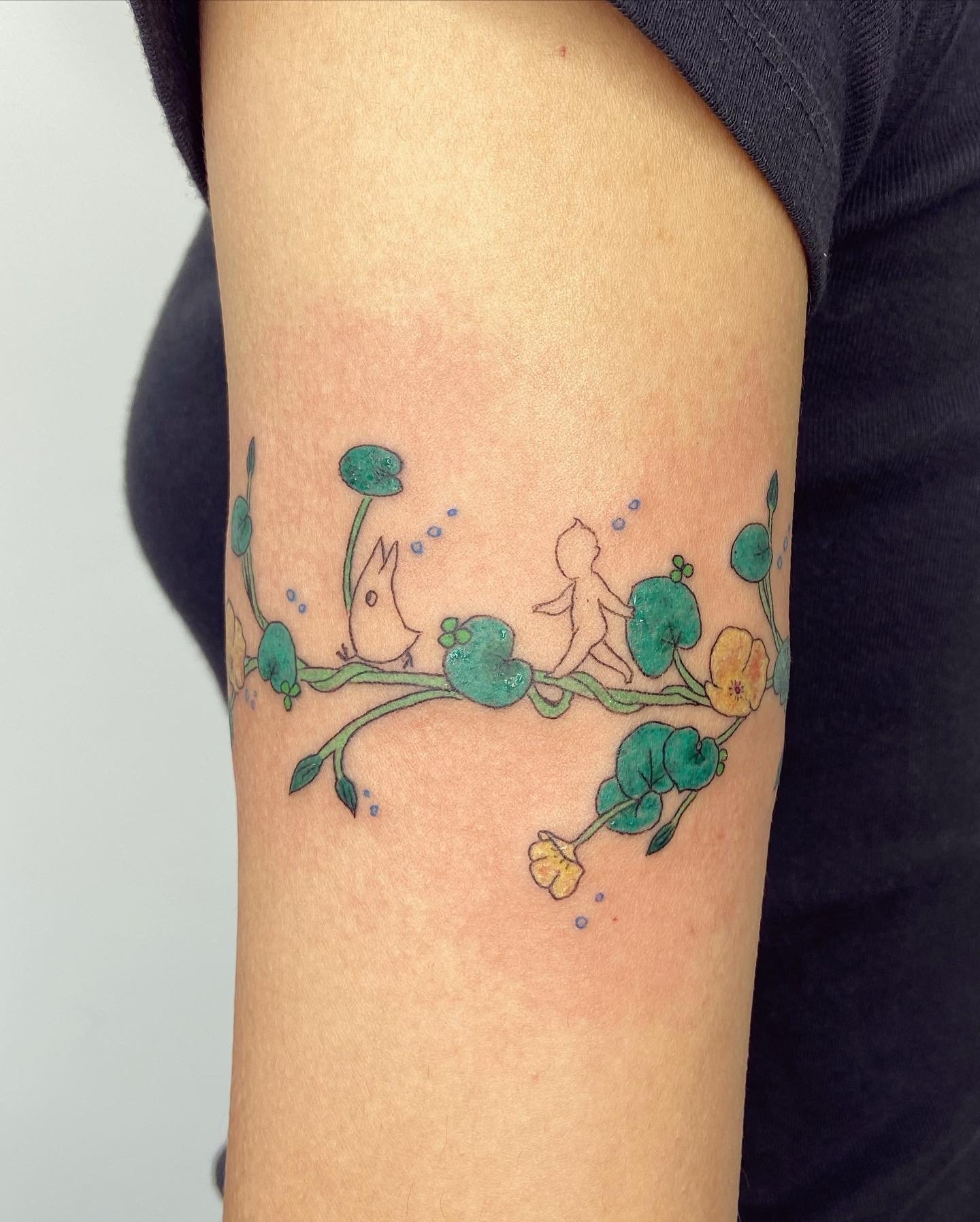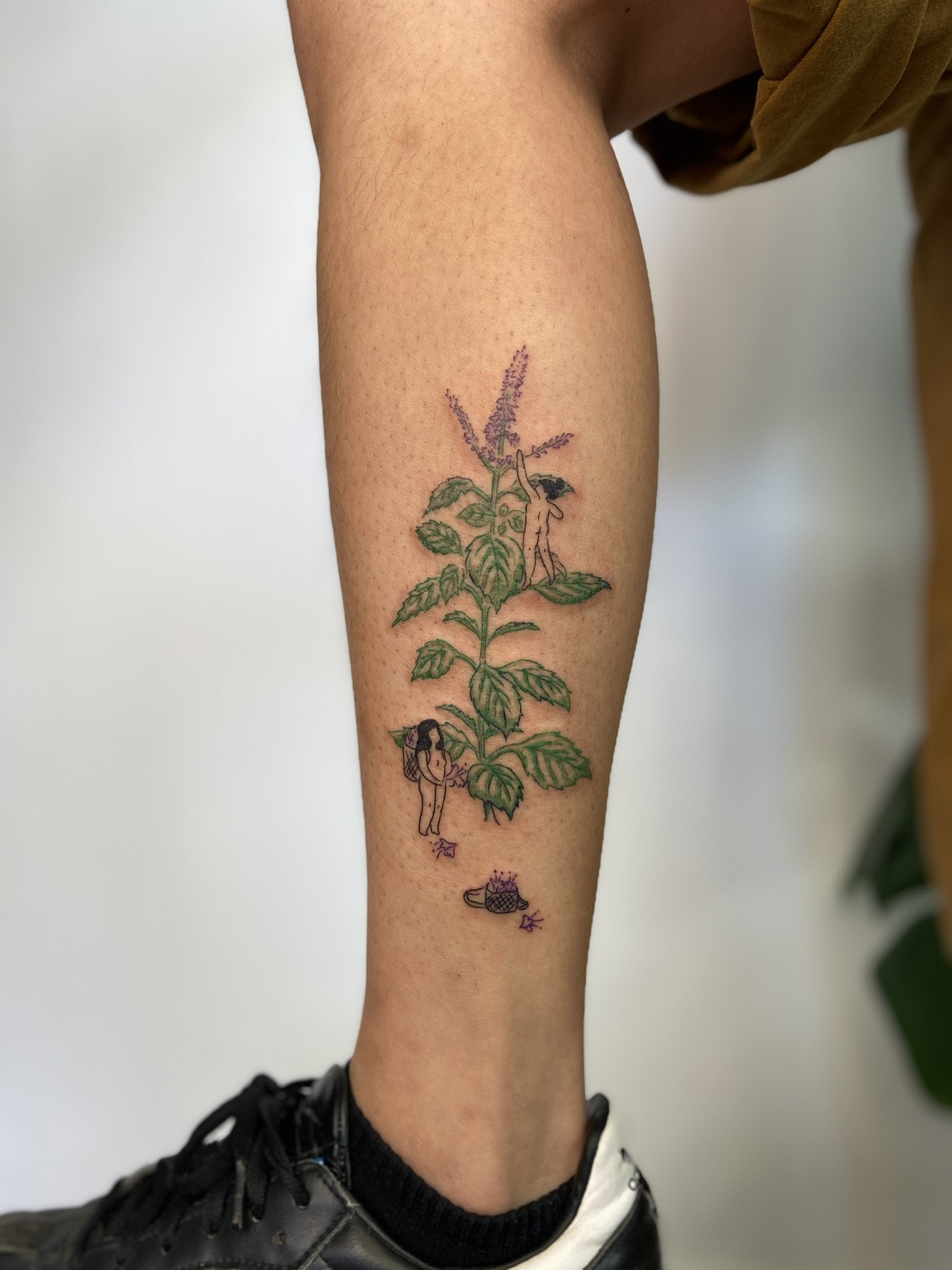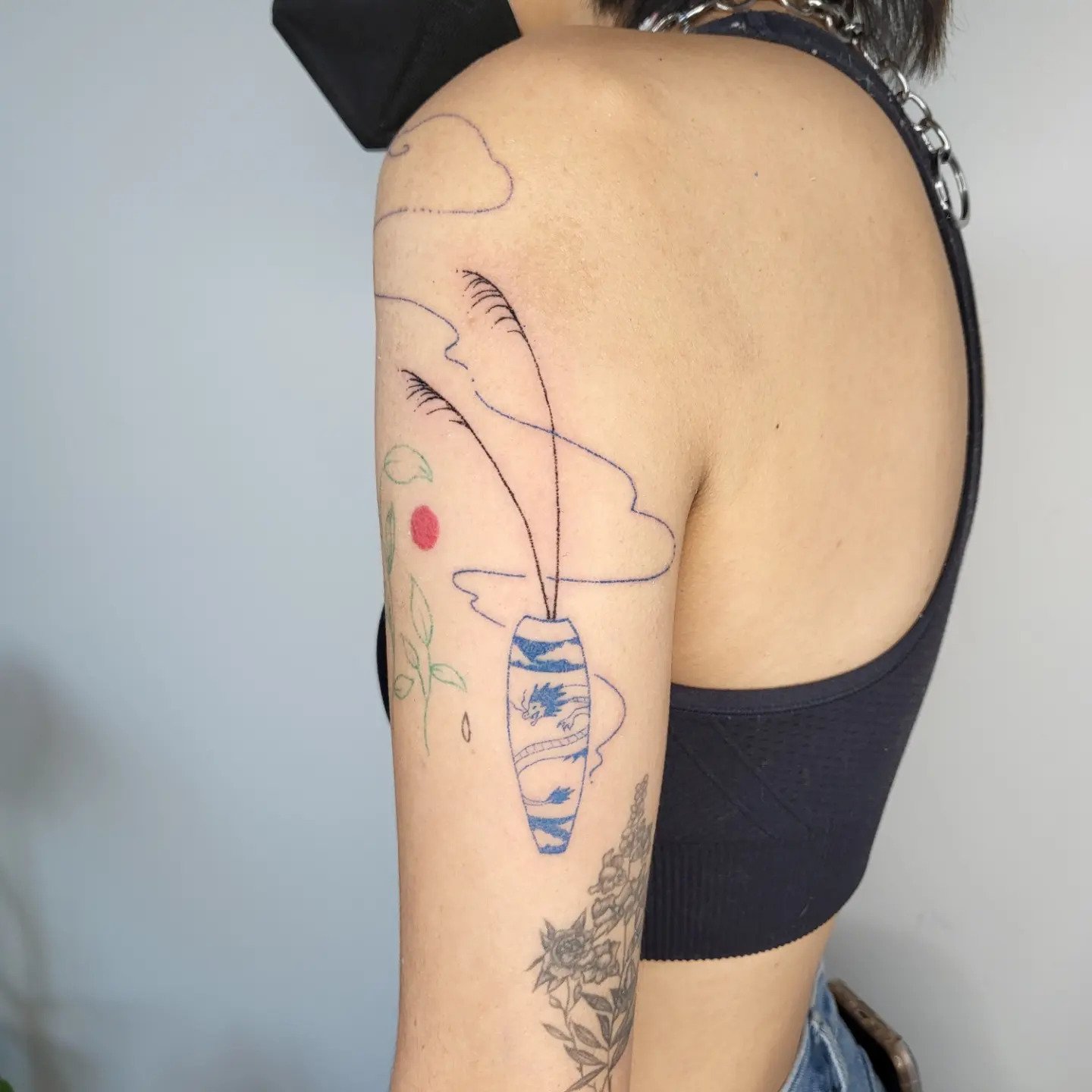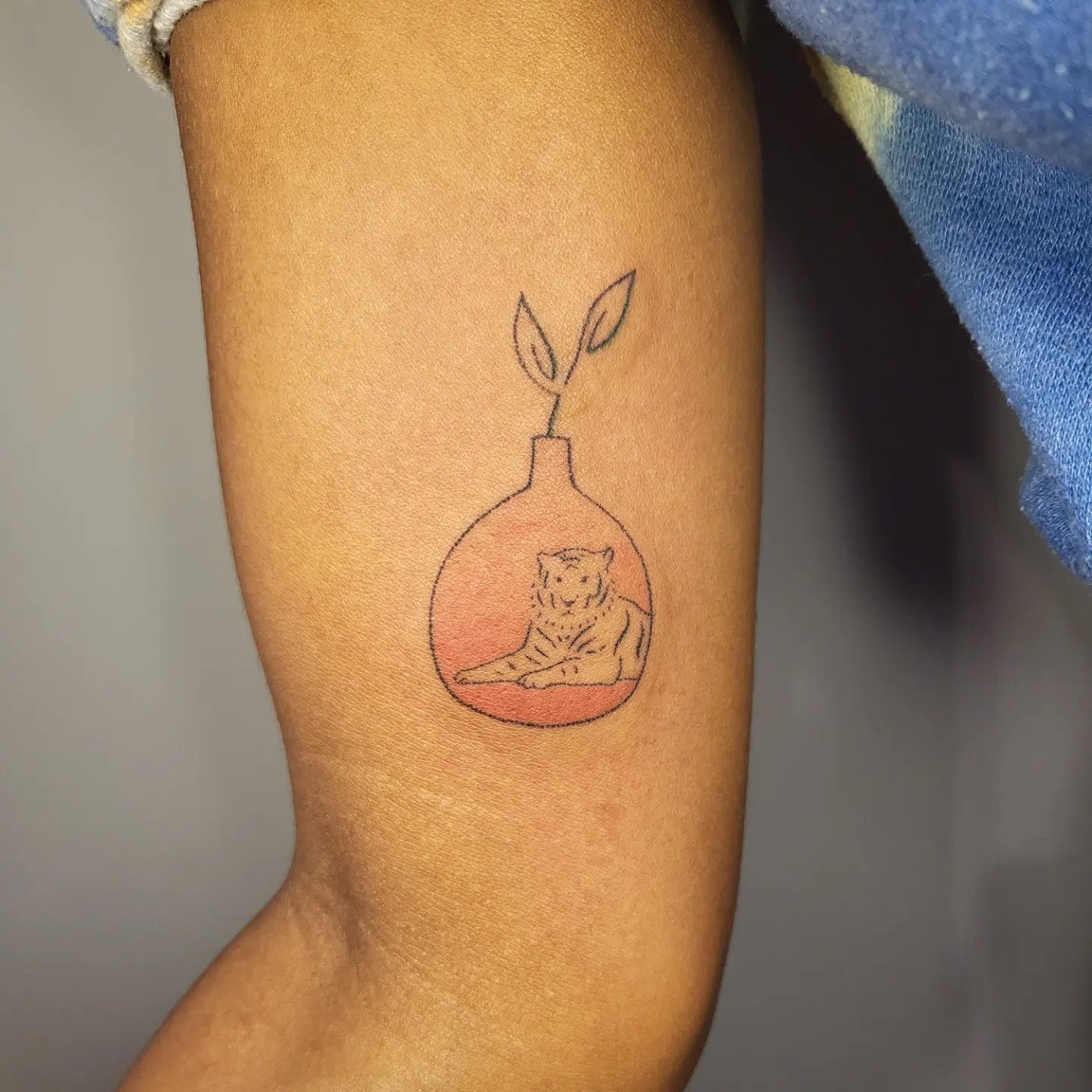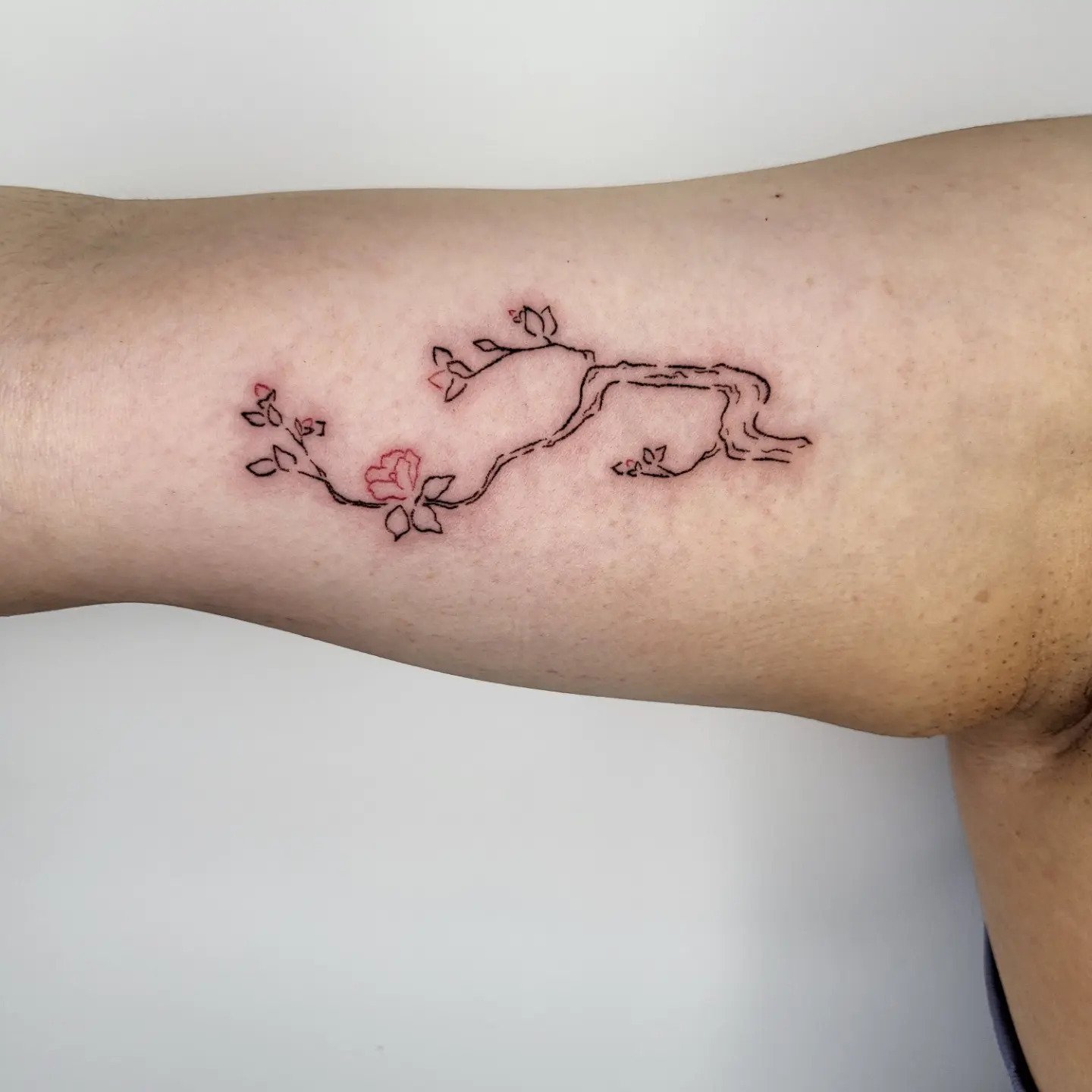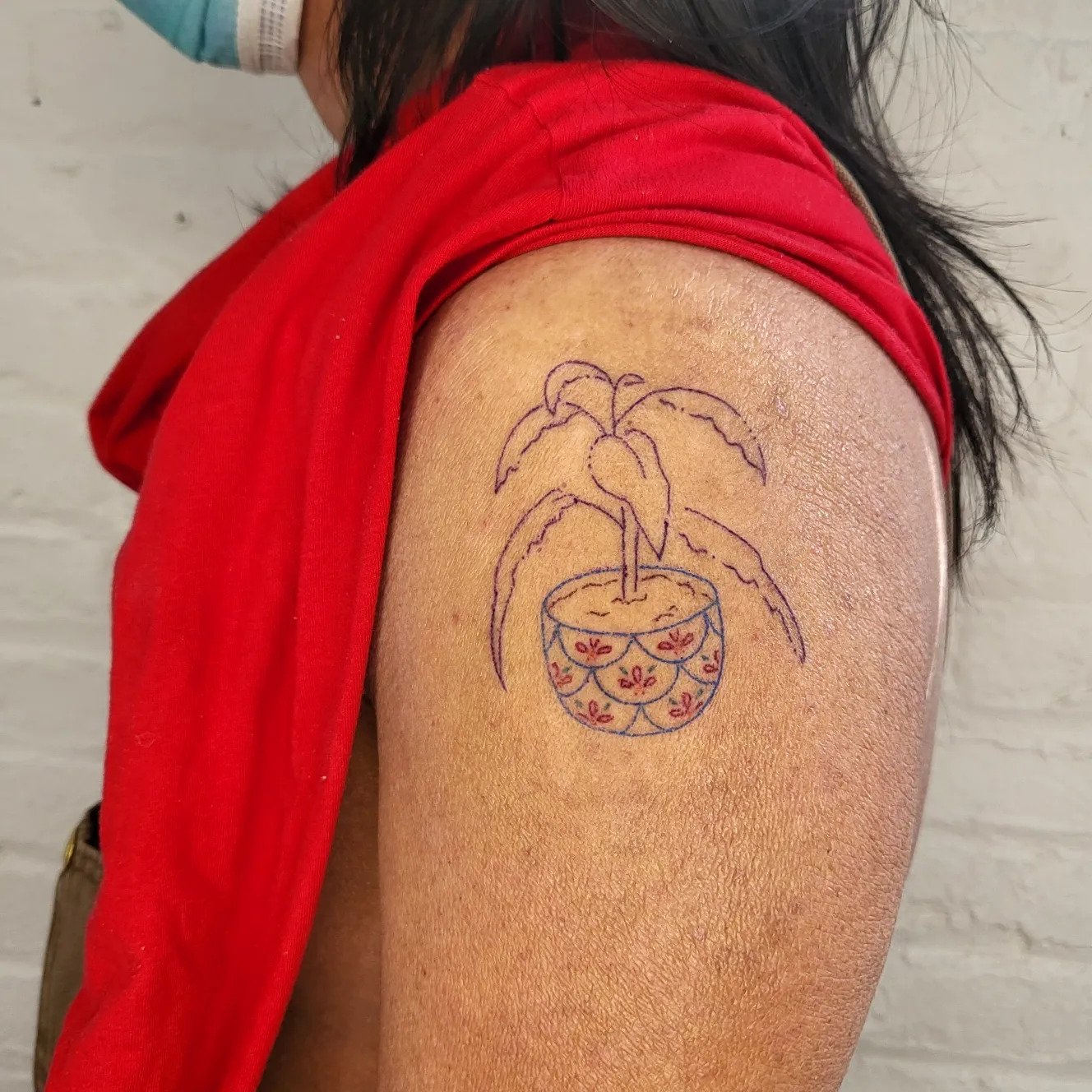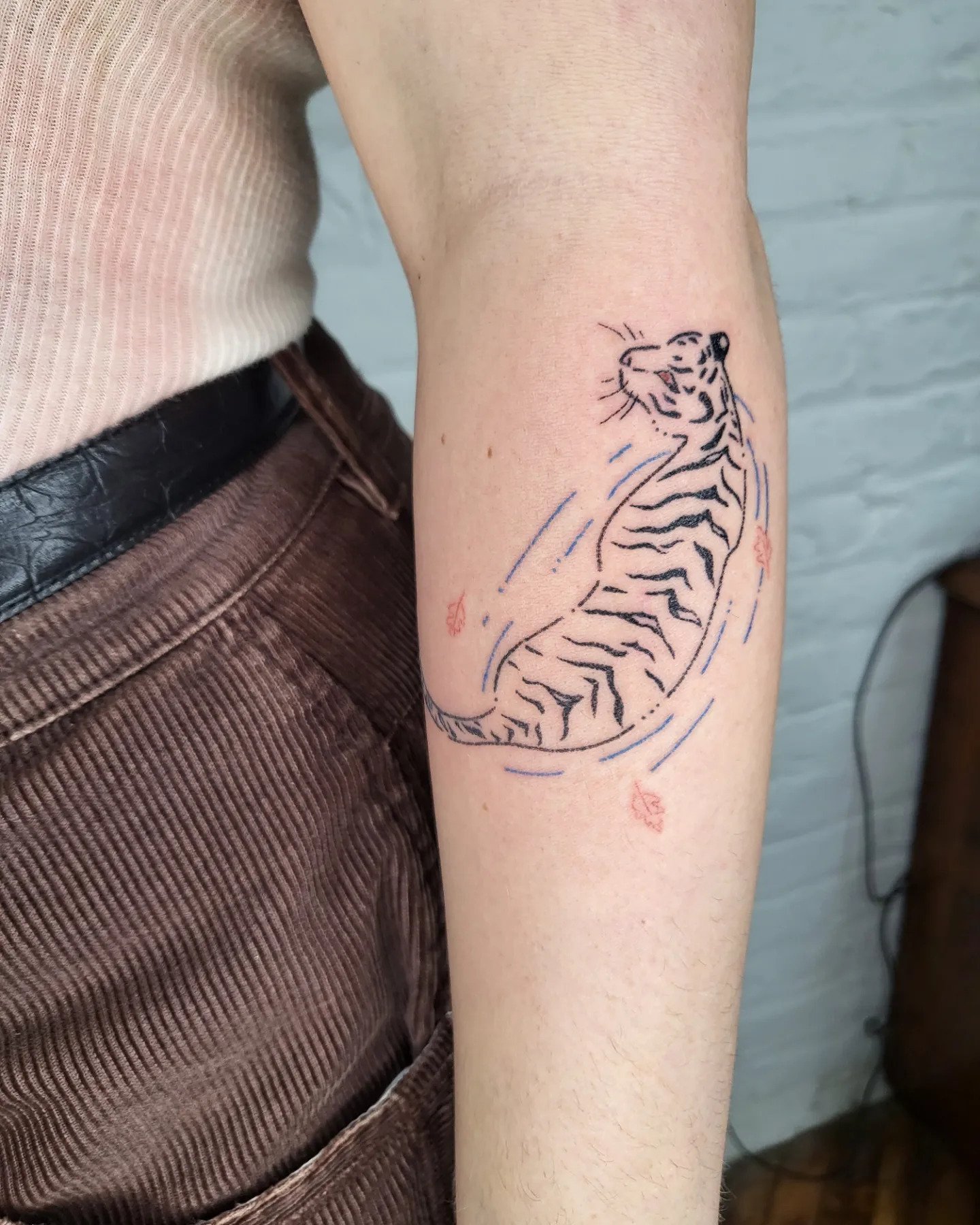Entrepreneur Spotlight: Long Time Tattoo
Long Time Tattoo is a queer-AAPI run private tattoo collective cofounded by Celeste Lai @limbforest (she/they), Sam Son @baby.radish (they/she) and Gabrielle Widjaja @gentle.oriental (she/they).
They are joined by artists Melanie Lee @smellanie.jpeg (she/her), Tiff Lai @tifflai.tattoos (she/her) and Evelyn Wang @raw.egg.yolk (she/her). Gabby, Sam and Celeste became friends through tattooing and Instagram from 2020-2021 and collectively decided to open a new space at the end of 2021. Its primary objectives are to create a safe space for all bodies who want tattoos, and to prevent any individual from profiting off the labor of any other tattooer as it is a co-op.
Long Time is still in its genesis, having recently opened in April 2022, and is already expanding to a larger space in Gowanus (so stay tuned!). The studio hopes to be fully operational and aspires to host public events, social gatherings, classes, artist talks and more by the end of Summer 2022 and beyond. The Long Time crew hopes to cultivate a space where AAPI and fellow QPOC can feel seen, heard, safe, and be empowered to reclaim heritage and/or bodily autonomy through art, conversation and tattooing.
What is your background, and the inspiration behind your business?
CELESTE: My name is Celeste Lai (she/they) and I'm an artist from Taiwan who has lived in NYC for the past 15 years. In these 15 years I've lived many lives, an art student, an animator, a mom, and now adding a new layer of being a tattooer who is running a shop with our cohort. When I originally envisioned starting a studio, it being a co-op was at the top of the priority. The idea that we would not be profiting on our peers is very important to me. That artists get to take home the profit they made at the end of the day and we are here to facilitate a working environment that everyone can feel like they have ownership of.
SAM: My name is Sam Son (they/she) and I cofounded Long Time Tattoo Celeste Lai and Gabby Widjaja.
My background, unfortunately, has no formal arts training. I honestly never thought I'd end up in the arts. I've always loved drawing and creating of all kinds but never once thought I'd be able to support myself that way. Before becoming a tattooer I worked for a union and dedicated my life to the labor movement.
The incredible community and culture of empowerment I learned as part of the labor movement is my biggest inspiration. I want Long Time Tattoo to be just as positive a force for our community. The intention of my practice is to allow people, especially queer Asians, to reclaim a little part of their bodies just for themselves. Long Time should be not only a safe space for all bodies, but one that facilitates community.
GABBY: My name is Gabrielle Widjaja (she/they) and I'm a multidisciplinary creative born and raised in California; my practice Gentle Oriental is about understanding my culture (and broader self/identity) through design, illustration, and more recently tattooing in the past 2 years. Sam, Celeste and I all met organically through Instagram (as all NY tattooers do) and connected instantly. We all started tattooing around the same time and all had wanted to have our own space to tattoo for various reasons; the stars aligned this past winter when we came together to discuss opening a space. Long Time Tattoo is something I never would have thought I would've cofounded with these two beautiful individuals 4,5 years ago. I'm so excited that we all have aligned on this vision of community and space-making for queer and AAPI folks in the Brooklyn area (and beyond, for visitors!). The uptick of POC / DIY tattoo artists in the past few years is significant, and we hope our space will be a dedicated force that empowers this wave in the coming future.
Tattoos by Gabrielle Widjaja
What is the significance of being an Asian founder in your industry?
CELESTE: Tattooing is a tradition that has been alive and breathed in new life in our generation. As a queer Asian American, I found a community in tattooing that is all about reclaiming our bodies and our identity. The generational trauma of feeling like our bodies belong to our parents, or belong to the male gaze all fall apart when we are in a space that accepts our nuance in a collective embrace. Being able to hold a physical space for that feels sacred.
SAM: I want to be able to give as much love and resources to other Asian creatives as I've received from my heroes and elder tattooers (who are all Asian!)
The Asian tattooers I've met have all been so helpful in nurturing my career and making tattooing accessible when I started. I'm grateful to them and would love to pass it on!
GABBY: I think it is incredibly significant that in a place that has traditionally been hostile towards outsiders (non-cis, white men) we are carving out our own space for ourselves and for others within our community. Tattooing has connected me to others in a way I never thought was possible, through story-telling, shared trauma (and joy!), and reclamation of our individual (and shared) identities. I also think it's extremely powerful that we are able to share our culture with others; traditionally, images from our cultures have been appropriated over and over without the respect and knowledge that we have and I'm happy that we're able to translate these concepts in an authentic way, drawing on our own ancestral wisdoms and experiences. In my experience, even if I've received a technically sound/beautiful tattoo, it doesn't matter to me if the experience was marred by a tattoo artist that I don't connect with. My only traditional Japanese tattoo was from a cis white man, and I feel like I would have remembered the experience so differently if I had gotten it from a Japanese-American tattoo artist learning their own trade and sharing that intimate experience with me. This is what I hope we can bring to people in our community.
Tattoos by Celeste Lai
Why are you proud of the Asian (American) community?
CELESTE: I'm proud of the Asian American community because I have seen the true resilience. As a person who grew up in Taiwan, in so many ways my identity is stable and I realize how much I take that for granted. I did grow up hearing a lot of the gatekeeping rhetoric that Asian people who haven't been an immigrant in a western country would say. The very harmful idea of who gets to claim an Asian identity, or being Asian enough, etc. But these noises all very quickly fell away the minute I landed here 15 years ago and found myself embraced by the Asian American community and how deep this community goes, how much more they hold their Asian identity as sacred because of all of these efforts to unsee them. It's a humbling experience, and being here now for half of my life I can say I feel such belonging I have not felt my whole life, I am still humbled every day as this journey continues in cultivating space with this community.
SAM: I'm proud of the Asian American community for unlearning generational trauma together. We're going to make our ancestors dreams come true and we're going to be emotionally healthy while doing it!
GABBY: I'm so proud because in the past the Asian community has felt so unseen and uncared for. In recent years we have been making noise, being loud and proud of our communities and making ourselves seen (seeing each other, and caring for each other, though this has always been the case). When I was first getting tattoos, I would have never imagined I'd be able to get tatted by someone who looked like me or had my background, and now here we are breaking into every industry and space. It feels cathartic to be here especially, in New York, where the community is so incredibly resilient and long-standing. I only arrived here 3 years ago but feel so seen and cared for by the community and I hope I can reciprocate that same care in my own ways.
What’s your favorite place to go in Chinatown?
CELESTE: My favorite place in ChinaTown has got to be Pell Street. It's my favorite block in the whole city, it just has good chi, the little corner gift shop is so cute, the old school barbershop, the way the street curves is one of my favorite things because curved streets in New York are hard to come by, especially one that is covered in Chinese words. Nom Wah is a classic and it's right next to Taiwan Pork Chop House, one of my only solace for authentic Taiwanese bento when I first got here in 2007, the couple blocks radius around that area feels like home to me in a time capsule/ portal that connects the past and present kind of way.
SAM: Hwa Yuan Szechuan has been a space a few tattooers and I have gathered and eaten very well! Meeting new tattooers and bonding over duck and braised pork is such a lovely experience.
GABBY: Honestly it's hard to choose, but I really will always love the Mott Street / Pell St area similar to celeste. Wing on Wo is one of my favorite places, Yu and Me is nearby as well, Wo Hop, Noodle Village, Golden Unicorn steps away, Chinatown Ice Cream factory for my fave Pandan ice cream, Alimama for dessert, what more can you ask for???
Tattoos by Sam Son
What are some challenges you’ve overcome an Asian founder, and how did the community support you?
CELESTE: Monetary support from our community was extremely moving to me. We held a raffle when we started out to off set the cost and the response we got was just incredibly touching. Also the spiritual support that comes with monetary support feel really meaningful and stabilizing, that we deserve to exists and a space like this is needed.
How does Chinatown inspire you in your work?
SAM: I'm really inspired by all of the different creative types who live and are deeply entwined in the Chinatown community! We love intergenerational bonding outside of the nuclear family setting!
GABBY: I'm inspired by the groups of younger folks coming together to protect and uplift Chinatown and continue the legacy that older residents have cultivated over time. (WtC, send chinatown love, etc)


